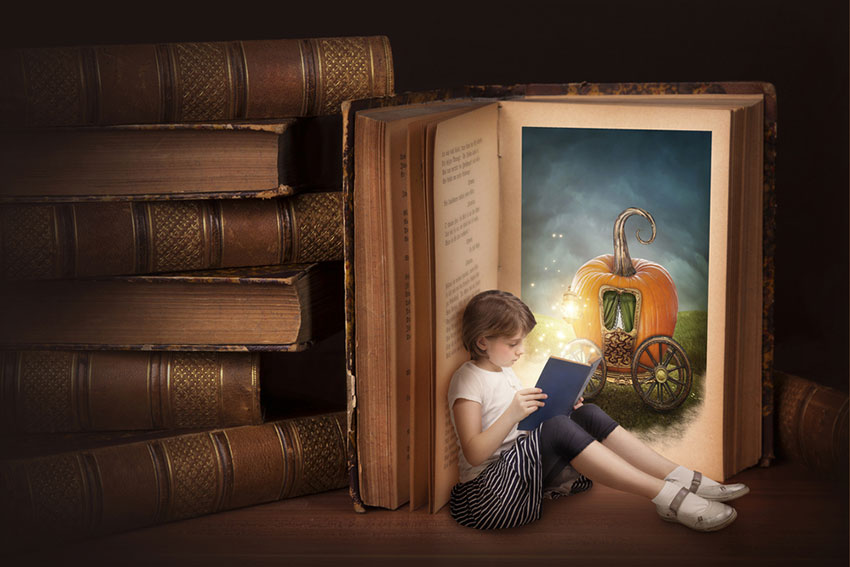For those of us who have grown up listening to stories from parents/grandparents told or read, there is a lingering essence of childhood scattered in memories of those stories, as if the ‘they-lived-happily-ever-after’ ending was a reflection of the childhood spent in gay abandon. Some stories only need the recall of a character to come tumbling out of the memory closet; others may be filed for times when the desire to savour those childhood days overpowers all else.
Stories…they are so much a part of the growing years.

But are they still as important as they were, once upon a time? Is there a dedicated storytelling time, even today, to knit the family in fairy tales and real-life stories flavoured with romance and simple ways of life?
That stories have an eternal appeal leaves no room for contention, but that we may have lost the art of narrating them does irk the purist in us. While it is easy to blame all things on lack of time and the overpowering presence of smartphones in our lives, the question is, have we, in our hurry to assess the importance of quality over quantity of time, forgotten the role of storytelling or even reading stories as a family to create shared memories? Experts may have identified ways and means to demonstrate the importance of quality time, but certain engagements, like reading a story, or even narrating one from memory, demands a quantum of time. The very act of huddling around a book to listen to a member of the family read a story is visually impacting. And, if that is the last activity of the day before the children go to bed, that impact is further strengthened.
Importance Of Reading Books To Your Children:
Reading Boosts Family Bonding

Reading as a habit has largely been affected by technology, but in the face of evidence that it helps build stronger family bonds and opens children’s minds to imagination, it is imperative to make reading a daily habit in your household. So, switch the mobile and the television set off, find a comfortable spot (the bed is your best bet) and read a story to your children. Make them feel warm and cocooned so that they would want to experience those moments repeatedly. When you make reading a habit, it becomes a part of the everyday exercise and the child will associate it with family time. There is a special joy in shared events and spending time together reading will strengthen your child’s feelings of intimacy and wellbeing. However, what is important here is to find stories that are appropriate for their age and find the rhythm to make the story interesting. Often, it is all about how you present the story and inculcate a love for reading.
Reading Aids Cognitive Development
Stories can spur imagination in children and push them to think beyond the words spoken. It improves the process of cognitive development or the ability to think, explore and figure things out. Listening to stories will boost this process by providing a sketch to fill in with colours of imagination. There will be questions asked and ideas presented about the story, which will further build the thinking process.
Reading Improves Language Skills
Children’s books, generally, contain simpler words and phrases to help them understand the story better, but hearing newer words, often repeatedly, will create a better understanding of their meanings and increase their vocabulary. In fact, reading to children, even in their infancy, will aid language acquisition. Studies have shown that children who have been read to as pre-schoolers find it easier to cope with the initial stress of learning.
Reading Increases Concentration

Reading boosts concentration and also inculcates a sense of discipline in little children who are, generally, fidgety. When stories are introduced early in their lives, they learn to understand the importance of sitting in one place to grasp the story and sequence of events. Once the comfort level is established, they will even look forward to the daily event. Such concentration will also help develop imagination and creativity and, in a way, cultivate a lifelong love for reading.

